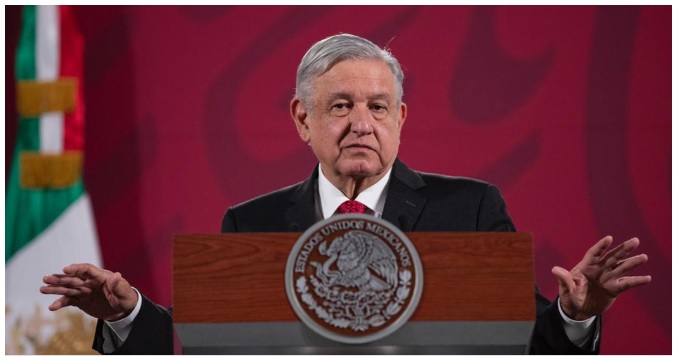President Andrés Manuel López Obrador said Friday, October 2nd, that Mexico has to pay its water debt to the U.S., or it would risk retaliation that could include new tariffs from the Trump administration.
He spoke even as clashes continued over plans to release more of the precious liquid.
The populist López Obrador is in the tricky position of having to meet Mexico’s water treaty obligations under the shadow of the Trump administration while farmers, many of whom voted for López Obrador, worry that that would leave them without enough water for their crops.
“Unilateral measures could be taken that affect Mexico with the excuse that we are not meeting the treaty’s agreement,” López Obrador said Friday. “Like the creation of tariffs — taxes — on the products we sell and export to the U.S.”
The drought-stricken northern state of Chihuahua, across from Texas, has seen violent protests over the government’s decision to pipe water it owes to the U.S. One protest led to a shootout on Sept. 8, leaving one dead and one wounded.
As a result of the nations’ treaty over waters from the shared Rio Grande basin, Mexico is expected to deliver about 1.75 million acre-feet of water every five years to the U.S. Texas officials say Mexico owes about a year’s worth of water, which needs to be delivered by Oct. 24.
“If we do not deliver what we are supposed to, we can give them footing to breach the treaty and revise it, which could harm us,” López Obrador said Friday while in Ciudad Juárez to inaugurate new infrastructure projects.
In a Sept. 16 letter, Gov. Greg Abbott urged U.S. Secretary of State Michael Pompeo to push for enforcement of Mexico’s treaty obligations.
“The Mexican-controlled waters of the international Rio Grande Basin are vital to ensuring that Texas’ water right holders can irrigate crops, supply water to municipalities, and conduct industrial operations along the Rio Grande,” Abbott wrote, adding that if Mexico did not deliver the water, Texas farmers would be forced to “secure alternate sources of water, change crops and reduce operations.”
Abbott wrote that the U.S. sends about 1.7 million acre-feet of water annually from the Colorado River into the Rio Grande and that Mexico is more than capable of delivering what it owes.
“Since 1944, there has been a water treaty with the U.S., one of the few treaties in which our country benefits more,” López Obrador has said. “They give us three times the amount of water that what we have to give back — that’s the agreement.”
But farmers in Chihuahua state and their supporters say rain has been scarce and farmers don’t expect any soon, which means reservoirs lack an adequate supply for crops. Many farmers fear there will not be enough water left by the time the next season comes along and they need to irrigate their crops.
Tensions have been rising for months between farmers and national guardsmen who were sent to guard three of the area’s reservoirs. Farmers in Boquilla, a small town about 350 miles south of the border, have taken to the streets, clashing with Mexico’s national guard. On Sept. 8, wielding sticks and rocks, they seized control of the dam at the largest reservoir in the state.
One supporter of the thousands of protesting farmers is Irasema Calderon, 60, who also marched toward La Boquilla dam the day it was taken from the national guard. She said about 5,000 people from across the state gathered that day.
As a daughter, wife and mother of farmers, Calderon feels strongly about defending Chihuahua’s water. Women like her have rallied alongside the farmers to show support, worried about the livelihood of the tens of thousands of families in the region.
Source: Dallas Morning News


